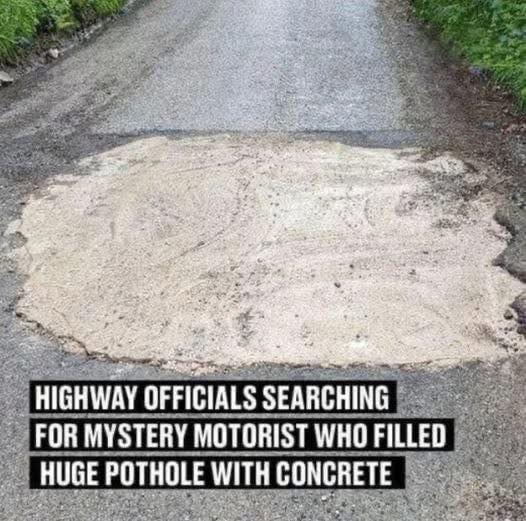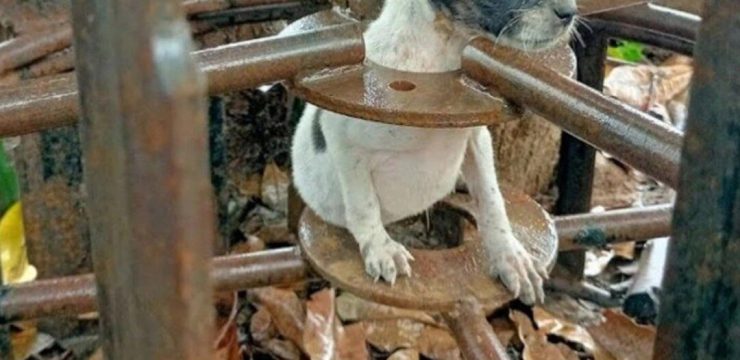In Cornwall, England, a frustrated motorist decided they had had enough of waiting for road repairs and took matters into their own hands, sparking both public praise and official backlash. The incident happened at the intersection of Tanhouse Road and Bodmin Hill in the town of Lostwithiel, where the road had been closed off by authorities in April due to ongoing drainage issues that had caused serious deterioration.

Despite the closure, little visible progress was made for an entire month, leaving local drivers irritated by the prolonged inaccessibility and continued inconvenience. At some point during a weekend in May, an anonymous individual stepped in and filled a particularly troublesome pothole with cement, seemingly in an effort to restore basic usability and make the road passable again. The makeshift repair temporarily reopened the road, providing some much-needed relief to drivers who had grown tired of detours and delays. However, the impromptu fix didn’t sit well with local authorities.
The Cornwall Council’s road repair contractor, Cormac, moved quickly to shut the road down again after discovering that the patch job had not been done through official channels. Because the work wasn’t sanctioned, Cormac deemed it unsafe and removed the cement, stating that repairs need to meet specific standards and safety guidelines. While the council insists the road must remain closed until June 9th to allow Cormac time to properly address the problem as part of a larger backlog of road maintenance projects, the incident has sparked a debate about public frustration, infrastructure neglect, and bureaucratic inefficiency. Officials from Cornwall Highways are now trying to identify the individual who carried out the unauthorized repair.
Although technically a violation, the act has resonated with many locals who see it as a symbol of people taking initiative when the system fails to deliver. The unidentified citizen’s quick fix, though not compliant with engineering standards, was viewed by many residents as a reflection of growing frustration with the slow pace of public works and the decline in services. Colin Martin, the Cornwall Councilor representing Lanreath and Lostwithiel, did not shy away from expressing his views on the broader implications of the event. He described the situation with the pothole as a “perfect metaphor for the way that the entire public sector is crumbling due to underinvestment.” His statement highlights what many believe is the root of the problem—a lack of funding and resources that leaves local infrastructure projects delayed or ignored.
While he didn’t condone unauthorized repairs, Martin’s comments suggest an understanding of why residents might feel compelled to act when official solutions are slow or nonexistent. The incident has sparked conversations across Cornwall and beyond about the state of roads, accountability, and the role of ordinary citizens in addressing public problems. While safety regulations and official procedures exist for good reason, many believe this event underscores how red tape and underfunding can leave communities feeling helpless and ignored. Social media reactions have ranged from amusement to outrage, with some users applauding the anonymous motorist’s initiative while others worry about the precedent it sets. Some fear that if people begin taking road maintenance into their own hands, it could lead to inconsistent repairs or even dangerous conditions. Others argue that when the government fails to maintain basic infrastructure, it’s no surprise that residents step up out of necessity, especially when they feel that local authorities have dropped the ball. In the end, the story of the Lostwithiel pothole has become more than just a tale of one road—it’s a snapshot of broader concerns about infrastructure, government responsiveness, and public frustration. Whether the mystery motorist is ever identified remains to be seen, but their small act of civil disobedience has left a lasting impression. It serves as a reminder that sometimes, a pothole isn’t just a pothole—it’s a symbol of something much larger. And while the road may be officially closed again for now, the conversation about what happened there remains wide open.





